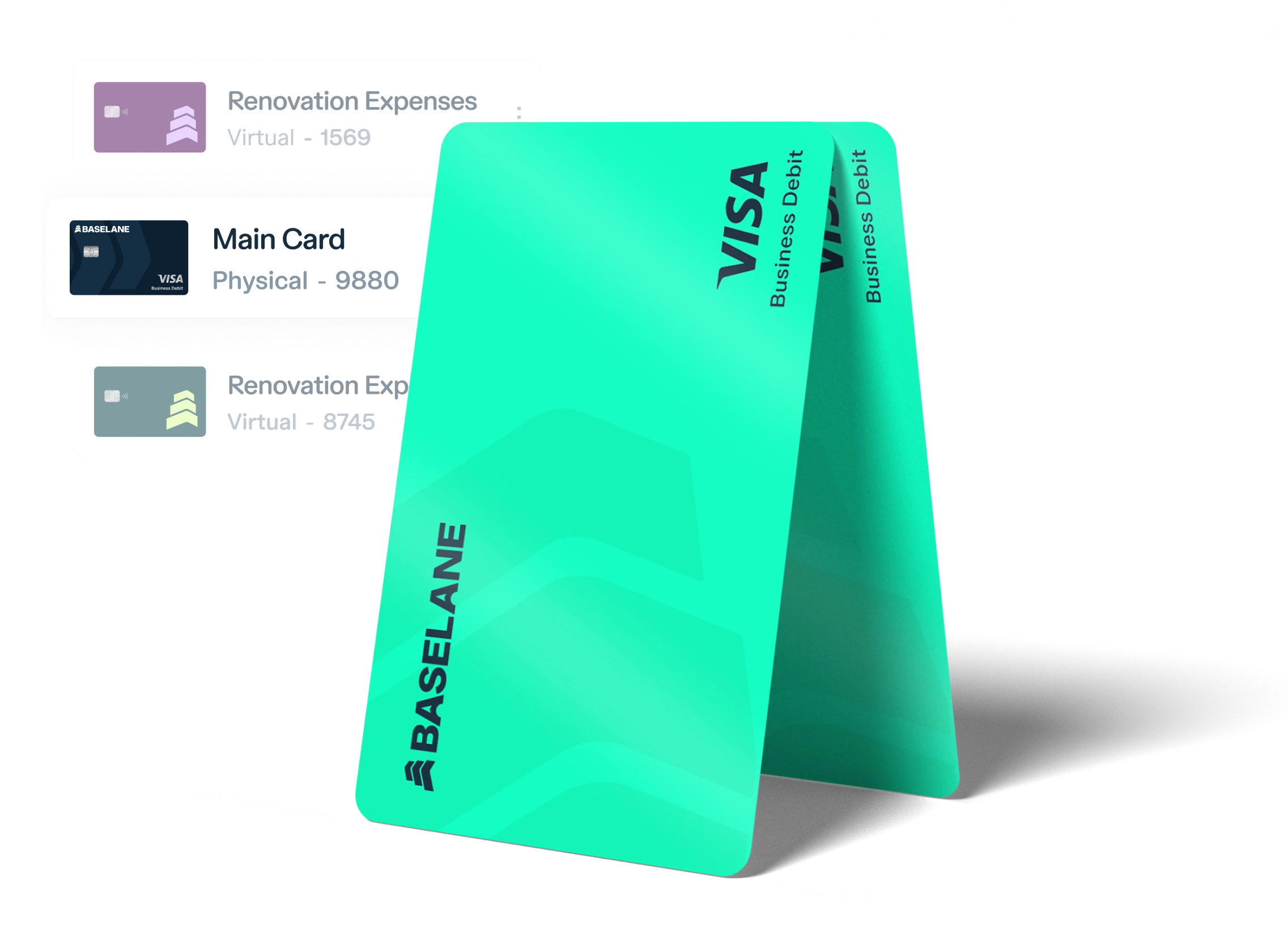If you’re holding tenant security deposits, you might be required to pay interest on them—depending on your state laws.
This guide breaks down current escrow interest rates in 2025, which states require landlords to pay interest, how much you’ll owe, and how to stay compliant. We’ll also cover how interest is calculated, who earns it, and what to consider when setting up the right type of account for your rental.
Key takeaways
- Interest-bearing escrow account rates vary based on state regulations, economic conditions, and local ordinances.
- Some states require landlords to pay interest on security deposits, while others don’t. Rates and rules vary by location and are updated annually.
- Failing to comply with escrow interest laws can lead to penalties, legal issues, or loss of the entire deposit.
- In most states, tenants are entitled to the interest earned on their deposits, either as a refund or rent credit.
- Using a separate, interest-bearing escrow account helps landlords stay compliant, organized, and transparent.
Purpose of escrow account interest rate for rentals
The purpose of escrow account interest rates for rentals is to ensure fair financial management and compliance with state regulations when handling tenant deposits and rental-related funds.
An escrow account is a secure third-party account where security deposits are held for the duration of a tenancy. In some states, these accounts must be interest-bearing, meaning they accrue interest over time. The interest rate on escrow accounts depends on state and local ordinances.
Understanding escrow account interest rates
Understanding escrow interest rates helps you stay compliant and avoid costly mistakes. But who earns that interest? And how do you calculate it? Let’s break it down.
How does interest accrue on escrow accounts?
Escrow accounts for rentals hold tenant funds—usually security deposits—until the lease ends. In many states, if that account is interest-bearing, the deposit earns interest while it sits untouched.
But that depends on:
- State-mandated rates: Some states adjust rates annually based on market conditions, while others set fixed percentages.
- Bank policies: Financial institutions may offer varying interest rates depending on the type of account the deposit is held in.
- Market conditions: Some escrow accounts earn interest based on current savings account or money market rates.
Who earns the interest on a rental escrow account?
Some states require landlords to return the interest to tenants, while others allow landlords to keep a portion or all of the interest as an administrative fee.
Depending on state laws, interest accrued on a rental escrow account may be:
- Paid directly to tenants as a refund or rent credit.
- Partially retained by landlords as an administrative fee
- Shared between tenants and landlords, based on local ordinances.
Some states also require you to disclose the escrow interest rate and account details in a security deposit receipt when tenants move in.
How is interest calculated?
Escrow account interest is calculated based on the deposit amount, interest rate, and the length of time the money stays in the account.
Example scenario:
- Security deposit: $2,000
- Escrow interest rate: 1.5% per year
- Time held: 1 year
At the end of one year, the bank applies 1.5% interest to the $2,000 deposit. That means the tenant earns:$30 in interest after one year.
If the tenant stays for two years, the interest is applied again the next year, so they would earn another $30, totaling $60 over two years.
Additional considerations
Some states have extra layers of rules around:
- Where deposits are held (must be in regulated institutions)
- Disclosure to tenants (bank name, interest rate, account type)
- Minimum amounts before interest applies (like $100+ in Pennsylvania)
In some states, failing to comply with escrow laws means you can’t keep any part of the deposit—even with damage.
Interest on escrow requirements by state
In some states, landlords must place deposits in interest-bearing escrow accounts and pay that interest to tenants. In others, deposits can be held in a standard interest-bearing account.
Here’s a quick state-by-state breakdown of required interest on escrow deposits in 2025.
State-by-state escrow account interest rate requirements (2025)
| State | Interest Required | 2025 Interest Rate | Rules |
|---|---|---|---|
| Connecticut | Yes | 0.52% | Must be held in an interest-bearing escrow account; interest paid annually to tenant. |
| Delaware | No | N/A | State-based escrow account required for tenancies over 1 year; tenant informed of account location. |
| Georgia | No | N/A | Escrow accounts required for landlords who own 10+ units; tenant informed of account location. |
| Oklahoma | No | N/A | Must be held in a state-based escrow account. |
| Pennsylvania | Yes | Variable | Interest–bearing escrow accounts required for deposits over $100 held for 2+ years; actual interest earned paid annually after 2 years. |
| All Others | Conditional | 0.01% to 5% | No other states require interest-bearing rental escrow accounts, but some require separate security deposit interest accounts. |
Note: “Variable” rates indicate that the interest is determined by prevailing bank rates or indices, which may change over time. Interest rates may change annually based on state legislation and economic conditions. Always check local laws for updated requirements.
Benefits of interest-bearing escrow accounts
Interest-bearing escrow accounts offer transparency and financial structure for both landlords and tenants. While not required in every state, these accounts can support compliance and trust—especially when security deposits sit untouched for months or even years.
For landlords
- Ensures legal compliance and avoids penalties: Certain states require interest-bearing escrow accounts by law. For example, landlords in Pennsylvania must pay interest on over $100 held for more than two years—or risk paying double the deposit back as a penalty.
- Financial gain or offsets from accrued interest: Landlords can legally keep the interest earned in states like Georgia and Oklahoma. While the average rental deposit escrow rate is 1% or less, it’s still growing your money. Even at 1%, a $1,500 deposit could earn $15 annually—enough to offset admin costs or fees.
- Protected, segregated funds (trust and safety): Interest-bearing accounts keep tenant funds separate and protected. Some states like Delaware even require landlords to disclose the escrow account location. This structure reduces financial risk and builds trust with tenants.
For tenants
- Earns interest over time: In states like Connecticut, tenants are entitled to earned interest—up to 0.52% annually. It may be small, but it’s a bonus on money they already set aside.
- Greater security and assurance of deposit return: Knowing a deposit is in a regulated, interest-bearing account offers peace of mind. Tenants in Georgia and Delaware receive a security deposit receipt showing where their funds are held. That visibility builds trust and confidence in the process.
- Fewer disputes and smoother move-outs: Escrow accounts often come with clear rules and documentation. That means fewer arguments over deposit returns. In a recent survey, nearly half of renters reported having at least one move-out disagreement over security deposit deductions. Transparent records make moving out easier for everyone.
Use a security deposit deposition form for documenting deductions to provide tenants with an itemized list of costs their deposit will cover. This is required in most states.
How to choose the right interest-bearing escrow account for rentals
To choose the right interest-bearing escrow account, start by checking what your state requires—then look for an account that keeps things simple, organized, and fee-free. The right setup helps you stay compliant, separate tenant funds, and manage deposits without extra work.
Check state and local regulations
Many U.S. states have specific laws about how landlords must handle security deposits. Often, landlords are required to keep deposits in a separate account, and a few states even mandate escrow accounts and interest for the tenant’s benefit. Before choosing an account, make sure you know your state’s requirements, so you select a compliant solution.
Choose a reputable financial institution
Opt for a bank or financial institution with a strong reputation and experience handling landlord escrow accounts. Traditional banks and credit unions are safe (FDIC-insured) choices for holding tenant deposits, though they often charge monthly fees or limit how many escrow accounts you can open.
Consider a digital banking solution like Baselane for your security deposit account. Baselane offers FDIC-insured1 banking with no monthly fees and allows unlimited sub-accounts, so you can have a separate account for each deposit. Plus, Baselane’s real estate banking features (like automatic transaction tagging by property and Schedule E) make it easy to keep track of each deposit without extra hassle.
Compare escrow interest rates and fees
When evaluating landlord security deposit accounts, pay attention to the interest rate (APY) and any associated fees. A higher interest rate means the deposit funds will grow more over time, which can benefit your tenant (or you, depending on state law). However, high interest won’t help if fees eat into the balance.
Avoid accounts with monthly maintenance charges or steep minimum balance requirements. By choosing an account with a competitive interest rate and low or no fees, you ensure the deposit money works for you (and your tenant) instead of being eroded by costs.
Keep security deposit funds separate and organized
Never mix security deposit money with your personal or operating funds. Keeping each rental’s deposit in a dedicated escrow account helps you maintain clear records and prevents accidental misuse of funds.
Many landlords open a separate account for each property or even tenant to track deposits and any earned interest individually. This separation not only simplifies security deposit accounting and refunds but also builds trust with tenants by showing that their deposit is safeguarded.
Leverage landlord-specific banking features
Consider banking platforms that offer features tailored to rental property management. For example, some accounts let you label or segregate funds by property, automatically tag transactions for a specific unit, or integrate with rent collection and bookkeeping tools.
These conveniences save you time and reduce errors by automating parts of your workflow. Choosing an escrow solution with built-in landlord tools means less manual tracking and more confidence that each deposit is handled correctly.
Guide to set up an interest-bearing escrow account for rental properties
Check if your state or city mandates the use of an escrow account for holding security deposits. Some states require these accounts to earn interest.
From there, opening the account is usually a simple process:
- Pick a financial institution that offers landlord-friendly escrow or security deposit savings accounts.
- Confirm that the account meets legal standards—interest-bearing, separate from personal funds, and with tenant details recorded.
- Provide required documentation, like property ownership records and tenant lease details.
Check out our guide on how to open an escrow account for landlord deposits for step-by-step guidance.
Earn up to 3.35% APY2 on security deposits with Baselane
Holding security deposits in the right account isn’t just about compliance—it’s about optimizing every dollar. With Baselane, you can open a dedicated security deposit account that’s easy to manage, separate from your operating funds, and earns a high APY with no monthly fees or minimum balance requirements. Plus, rent collection and bookkeeping are fully automated, and you can screen tenants, e-sign leases, secure financing, and get insurance all in one place.
It only takes a few minutes to sign up and start collecting rent and deposits. Open a free security deposit account today.
FAQs
Rental escrow interest rates depend on state and city regulations. In 2025, Connecticut requires landlords to pay 0.52% interest on security deposits held in escrow. In Pennsylvania, landlords must return earned interest to tenants annually, minus a 1% admin fee.
These rates may change yearly, so it’s important to check your local housing authority for updates. Make note of security deposit refund requirements for when and how to return deposits and interest.
No, only certain states require escrow accounts to earn interest. Connecticut and Pennsylvania mandate interest-bearing escrow accounts, while Delaware, Georgia, and Oklahoma don’t require escrow interest on deposits. Other states have regulations for separate deposit accounts with or without interest, depending on local laws.
Non-compliance can lead to financial penalties and legal issues. In Pennsylvania, landlords who don’t pay the required interest may be ordered to pay double the deposit as a penalty. Tenants can also file claims or take landlords to small claims court. To avoid this, landlords should track local requirements and use a compliant account.
Many states prohibit holding tenant deposits in personal accounts. Connecticut requires deposits to be placed in escrow at a state-based financial institution and pay annual interest. Using a personal account can lead to audits, lawsuits, or loss of the entire deposit. It’s safer to use a separate, clearly labeled escrow account.
Yes, tenants can ask for documentation of where their deposit is held. In some states—like Delaware and Georgia—landlords are legally required to provide this information at lease signing. Landlords must disclose the bank name, account type, and applicable interest rate.








